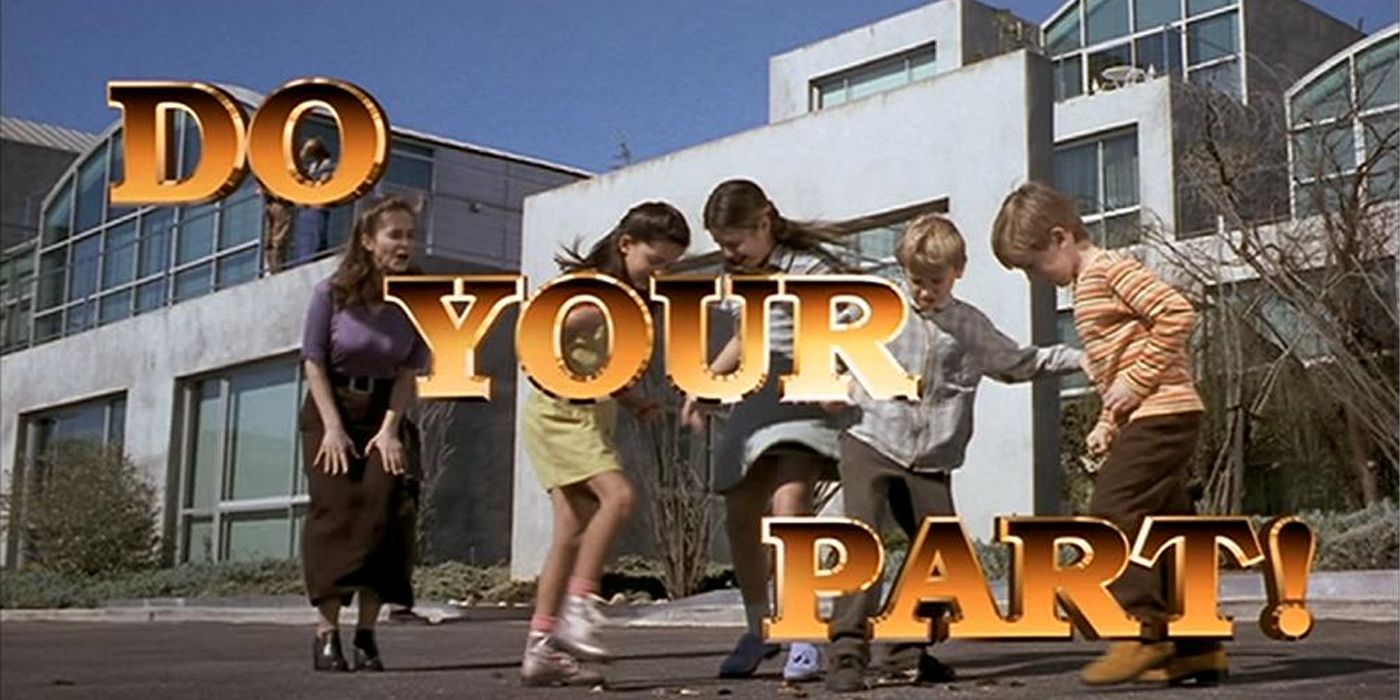Paul Verhoeven's cult-classic movie Starship Troopers features fake advertisements for the movie's futuristic military unit. The 1997 sci-fi movie's advertisement scenes are some of the most memorable, and comedic, moments in the films, but the advertisements themselves actually have additional significance for the movie as a whole — particularly, the movie's anti-fascist message.
Verhoeven is responsible for some of the most iconic science fiction films in the 1980s and 1990s — even Starship Troopers, which initially received negative reviews, is now considered by many to be one of the best sci-fi movies of all time. Movies like RoboCop (1987) and Total Recall (1990) were special-effects laden blockbusters that blended visually-stunning action sequences with the director's unique sense of humor. These films left an indelible mark on the industry as a whole, changing the way directors approached science-fiction dystopias.
Like Starship Troopers, RoboCop and Total Recall both feature fake advertisements. These ads contribute to the worldbuilding of the futuristic dystopic settings, helping the movies convey the dark side of the societies they depict. In doing so, Verhoeven also shines a light on the dark side of American society: the "Nukem" board game in RoboCop comments on Reagan-era America's preoccupation with violence, while the vapid-yet-soothing "Rekall" ad in Total Recall criticizes the predatory and manipulative nature of advertising. Starship Troopers similarly uses satirical advertisements in order to criticize an aspect of American culture.
Starship Troopers may be Verhoeven's most misunderstood film, as the movie's sharp satire of American colonialism, patriotism and militarism was lost on many of its initial viewers. The movie features recruitment advertisements that depict unbelievably (and laughably) enthusiastic military personnel — some of who die horribly while facing the movie's primary antagonist, the alien "bug" species, the arachnids. The opening recruitment ad in particular is rooted in Nazi propaganda: in an interview, Verhoeven told The Guardian that the soldiers addressing the camera and saying "I'm doing my part" is borrowed from the infamous Leni Riefenstahl movie Triumph of the Will. Starship Troopers has been criticized for these ads, with some arguing they contain a pro-fascist message; however, as Verhoeven explained in an Entertainment Weekly interview back in 1997, the purpose of the film's Nazi imagery was to encourage viewers to question how heroic and admirable these characters really are.
Perhaps the most disturbing element of the Starship Troopers' fake advertisements is its gleeful inclusion of children juxtaposed with the violent, easily-avoidable, mayhem. Although no child is actually harmed during the commercials, the implication is clear: they will be, eventually. Some of the younger recruits, especially those like the main cast, who enlist immediately after completing high school, are barely older than adolescents themselves. With the Starship Troopers fake advertisements, Verhoeven makes a scathing critique of the military's willingness to sacrifice the lives of bright, young recruits — all for the sake of an unnecessary war.


